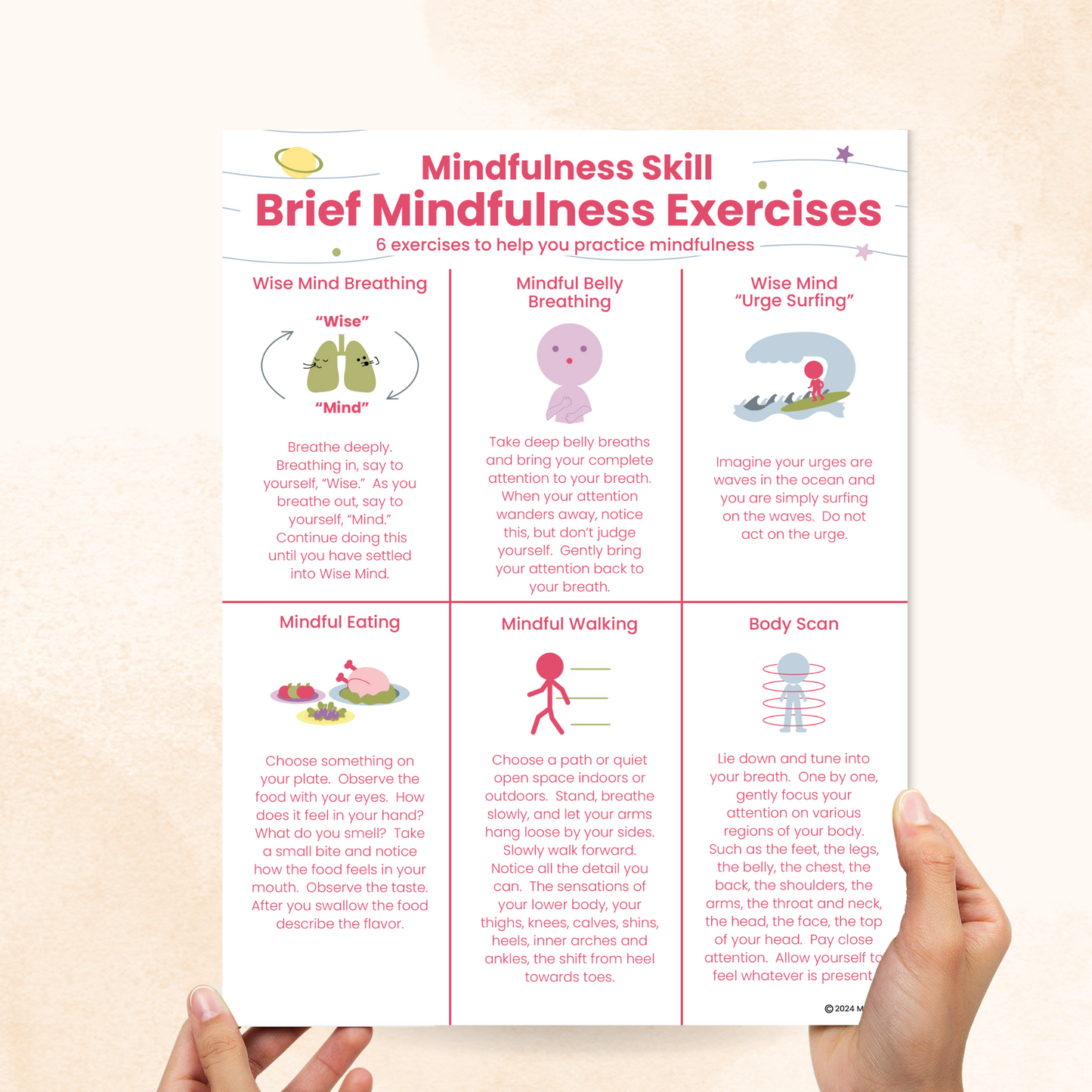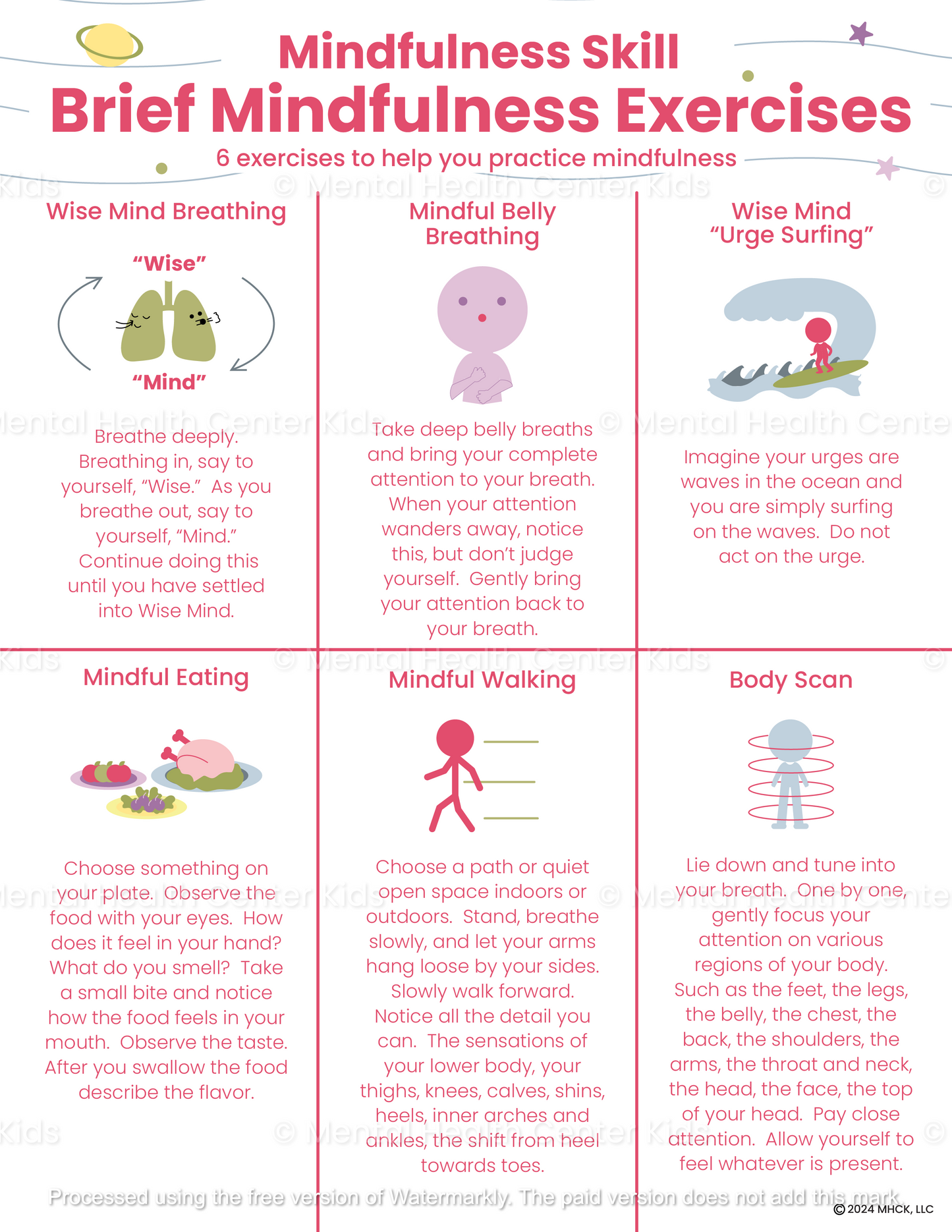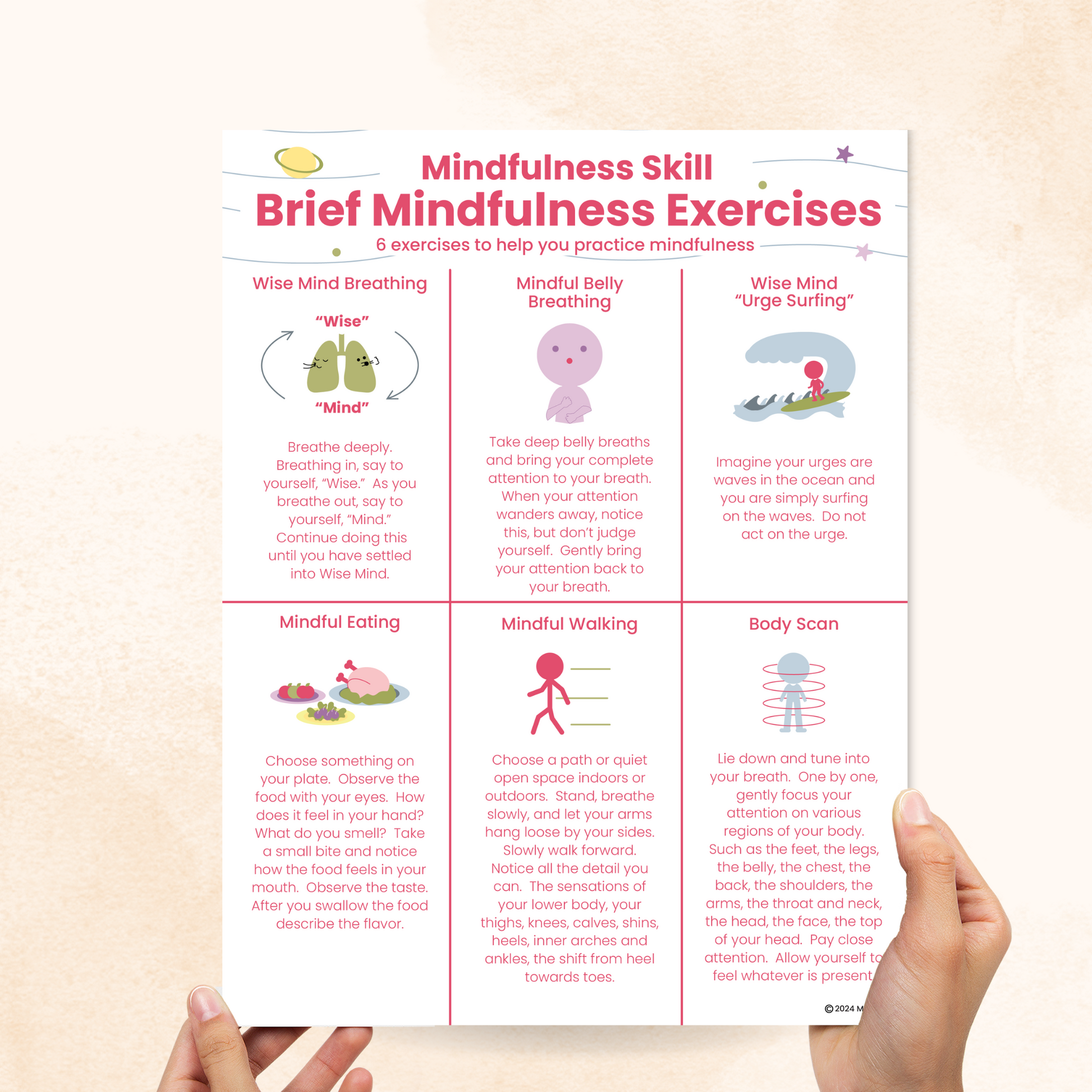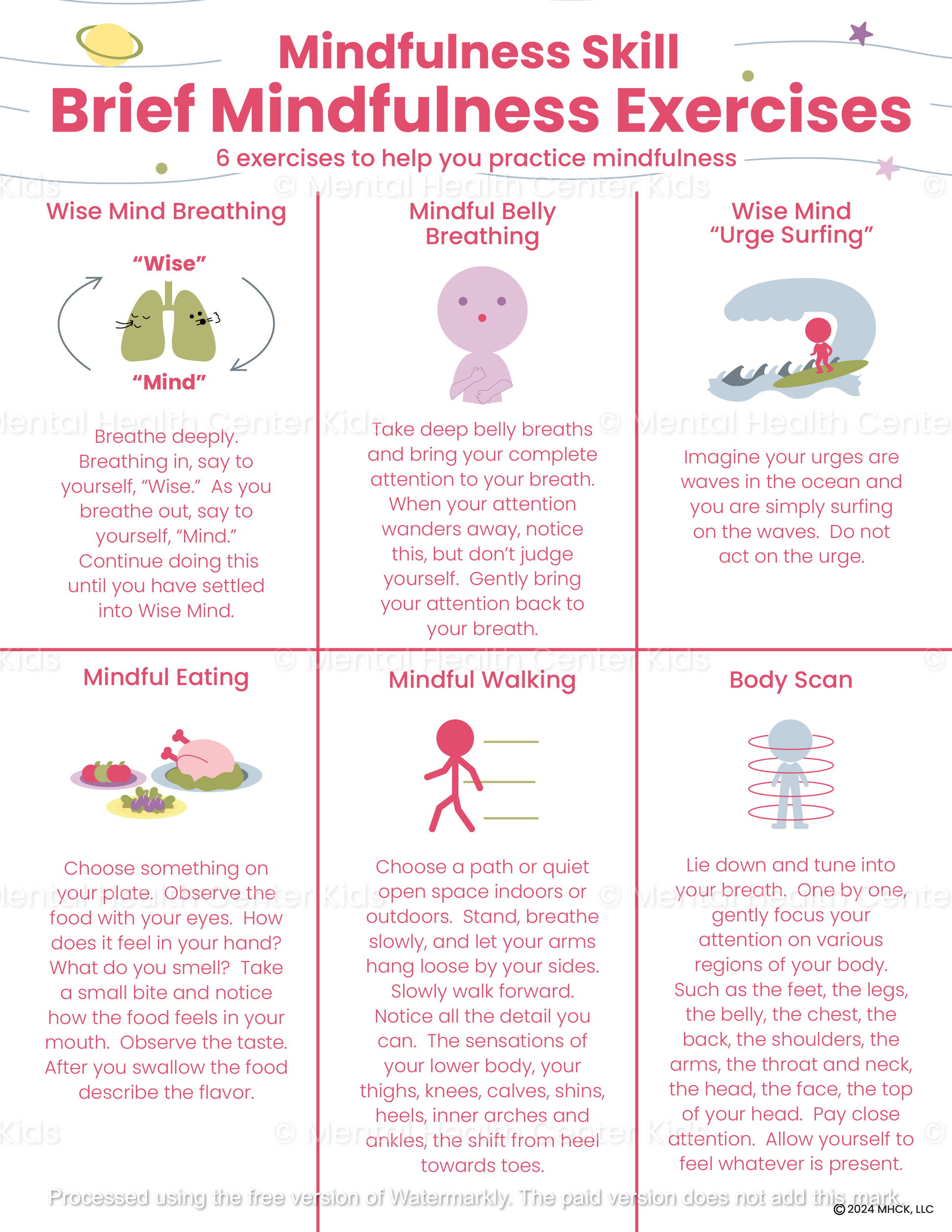DBT Mindfulness Exercises (PDF)


Mindfulness offers plenty of opportunities to slow down, relieve stress, and be fully present in the moment, and is a core principle taught in DBT. Examples like mindful walking in nature and mindful eating improve physical and emotional well-being by paying attention to body sensations and other senses. Practicing these simple mindfulness exercises daily helps increase our awareness of our thoughts and feelings.
The DBT Mindfulness Exercises PDF handout includes six exercises to help clients practice mindfulness. They can use breathing exercises like Wise Mind Breathing, Mindful Belly Breathing, and Urge Surfing to calm their minds. Meanwhile, mindful movements like Mindful Eating, Mindful Walking, and the Body Scan allow them to get into their bodies and let go of pent-up energy.
Using this handout helps kids and teens practice mindfulness, which offers many benefits like reduced stress, better emotional regulation, and enhanced focus. We recommend providing opportunities for a child or teen to integrate these exercises into their everyday routine. For instance, before having lunch, remind them to take a moment to pause, look at their food with curiosity, and take their time with each bite.
Our What Is Mindfulness In DBT and DBT Mindfulness Skills handout can be added on for more information on the DBT mindfulness skill.
*This item is an instant digital download. A link to download your files will be emailed to you once payment is confirmed.
Want more resources like this? Check out our full catalog of DBT worksheets and handouts.
References:
- Gotink, R. A., Hermans, K. S. F. M., Geschwind, N., De Nooij, R., De Groot, W., & Speckens, A. E. M. (2016). Mindfulness and mood stimulate each other in an upward spiral: a mindful walking intervention using experience sampling. Mindfulness, 7(5), 1114–1122. https://doi.org/10.1007/s12671-016-0550-8
- Warren, J., Smith, N., & Ashwell, M. (2017). A structured literature review on the role of mindfulness, mindful eating and intuitive eating in changing eating behaviours: effectiveness and associated potential mechanisms. Nutrition Research Reviews, 30(2), 272–283. https://doi.org/10.1017/s0954422417000154
- Instant digital download
- File: PDF
- Size: 8.5" x 11"



